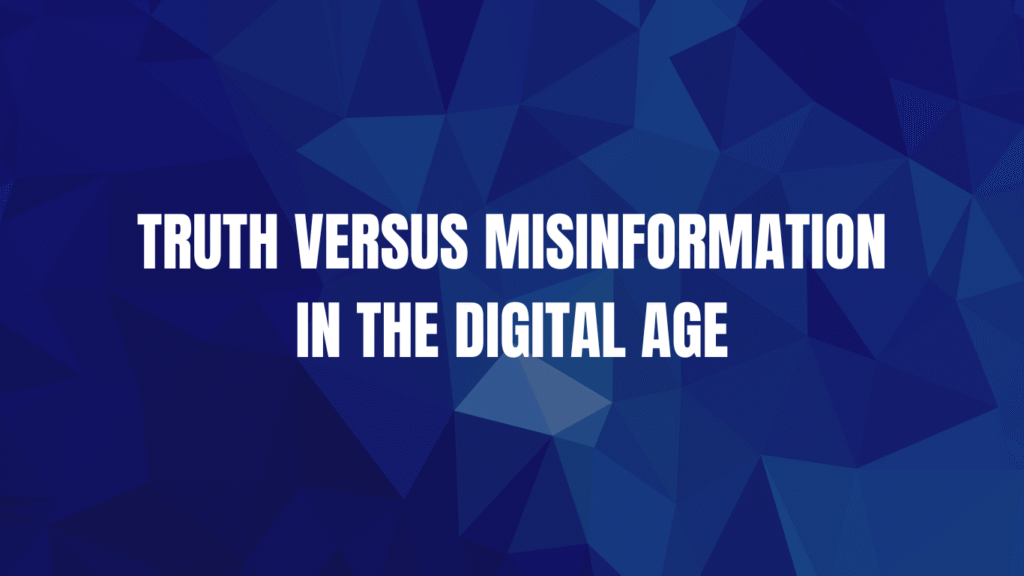Written by Yeow Chin Kiong
An understanding of the fundamental characteristic of who we are as Christians and members of the church of Christ is of utmost importance to our appreciation of our key duty and responsibility. 1 Timothy 3:15 tells us that scripture instructs us “… how (we) ought to conduct (ourselves) in the house of God, which is the church of the living God, the pillar and ground of the truth.” Truth is correspondence with reality and is the opposite of untruth or error. Whether intended to deceive or not, misinformation is untruth and cannot free us from any bondage to the consequences of sin (John 8:31-36).
Our Lord is the bearer of God’s word (Matthew 17:5; John 3:34; 12:49; 17:6-8; Hebrews 1:1-2), which is the truth which sanctifies, that is, makes holy or sets apart His disciples for a sacred purpose (John 17:16-19). Hence, the obtaining of truth,- including, but not limited to, truth from God’s word,- and the communicating of truth is the Christian’s primary duty and responsibility.
If we are not custodians and sentinels of scriptural truth, we are guilty of deleriction of our Christian duty. The command to, “Buy the truth, and do not sell it, also wisdom and instruction and understanding” (Proverbs 23:23) necessarily requires us to, “Test all things; hold fast what is good. Abstain from every form of evil.” (1 Thessalonians 5:21-22). We are to “contend earnestly for the faith which was once for all delivered to the saints” (Jude 3). And, as the apostle Paul commands in 2 Timothy 2:2, “… the things that you have heard fro me among many witnesses, commit these to faithful men who will be able to teach others also.” The question is, is this duty of ours easier to do in the present digital age or before there were such things as Information Technology (IT), the Net and Artificial Intelligence (AI)?
I submit that the situation,- the difficulties and challenges to overcome in preaching God’s word,- is generally no different today in the digital age than it was in the age of print communication. The key issue is the discerning use of sources of information. And the way to navigate safely through the situation is by assiduously applying Acts 17:11, 2 Timothy 2:15 and Hebrews 5:12-14.
I remember when the fledgling evengelist, pulpit preacher or Bible class teacher was warned to first and foremost be himself a good and profitable student of God’s word. Particular emphasis was placed upon the use of dependable versions of the Bible and trustworthy extra-biblical resources (especially commentaries). Of the former we were encouraged to use the King James Version or the American Standard Version, and even then to be aware of difficulties in their English translation of the Hebrew and Greek texts. We were distinctly warned not to use the so-called “dynamically equivalent” translations like the New International Version and paraphrases like the Living Bible, with their doctrinal weaknesses and dangers explained to us.
Of the latter we were encouraged to use commentaries and topical texts written by brotherhood authors, whom we had to identify by name, Bible school affiliation, reputation (such as debate experience) and publisher. We were warned that association with “the church of christ” did not guarantee faithfulness to God’s word. If we used material by denominational preachers and teachers, we had to determine their denominational affiliation and the consequential denominational errors which have crept into their texts. Above all, we were to read up every scripture-reference inserted in brotherhood or denominational text to see what God’s word had to say about what men had written about and had added a scripture-reference to add credibility!
Then, as now, we were to be wary of creeping error or false doctrine in the sources we used. It is one thing to plagiarise unique material written by others but altogether another thing to plagiarise error and misinformation! In the digital era of readily-accessible massive amounts of information, it takes much discipline and determination to check the veracity, reliability and trustworthiness of the information we obtain online. Particularly important is this step in learning and preparing to teach in the era of Artificial Intelligence, when the tendency is to accept as truth (and “Gospel truth” at that!) verbatim the summaries of Google Overview or the iterations of ChatGPT (or any AI-powered search engine, for that matter!). But, then again, that tendency to be lulled into blind acceptance of possible misinformation existed even during the era of printed information!
Unlike life, AI, Large Language Models, Machine Learning and search engines evolve. In their current iterations, they are not able to be arbitors of truth, reliability or trustworthiness. Any use of these tools of the digital age must be buttressed upon meticulous fact-checking and informed discernment on the part of the teacher and the student. Uncritical dependence on these IT tools in God’s kingdom invite disaster!
Much more about what God’s word says concerning this topic will be presented by brother Billy Bland during the YEAR-END SEMINAR 2025 to be held from 1.30 pm to 5.30 pm on Saturday, 15 November 2025 at the premises of Klang church of Christ, 11 Jalan Teluk Pulai, 41100 Klang, Selangor. All are encouraged to attend this spiritual feast about contemporary issues on the theme, “Challenges Of The Information Technology Generation.

